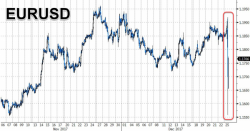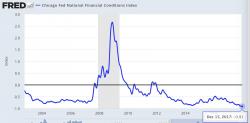Russia's Military Is Leaner, But Meaner

Authore by Leonid Brershidky via Bloomberg.com,
During Russian President Vladimir Putin's annual press conference on Thursday, a friendly journalist asked Putin whether the escalating tension in relations with the U.S. and the crumbling of arms control treaties would draw Russia into an unsustainable arms race. "We will ensure our security without engaging in an arms race," the president replied, citing widely diverging dollar numbers for the U.S. and Russian defense budgets.


